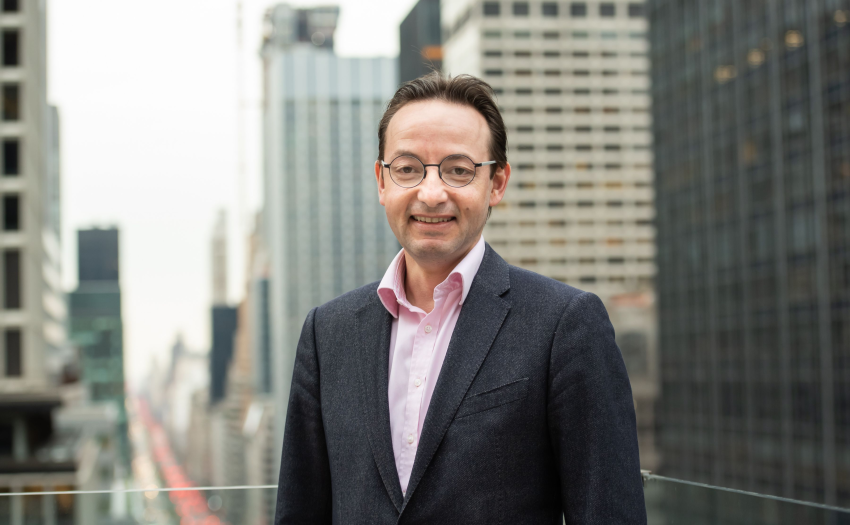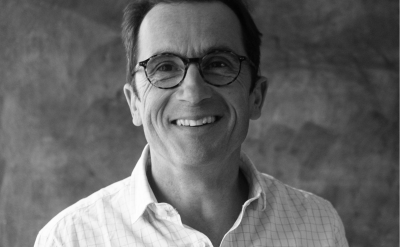News

Julien Hémard (SK 1993), CCO, Pernod Ricard, New York: “Management that is respectful of the local culture”
Asia, Australia, England, and now the United States: Julien Hémard has experienced a number of expatriations over the course of his long career at Pernod Ricard. During 25 years within this huge company, he has immersed himself in and adapted to different environments, cultures and languages. Now CCO (Chief Commercial Officer) at the New York headquarters, Julien talks to us about these enriching experiences around the world, during which adaptation, an entrepreneurial mindset and a taste for challenge have been key.
Can you tell us about your career progression within the Pernod Ricard Group?
Julien Hémard: From the very start of my career I wanted to work overseas. I joined Pernod Ricard as part of a Volunteer for International Experience (VIE) programme in Taiwan, where I continued to work for 4 years before heading to England for 3 years and then China, the Philippines and Australia, all with Pernod Ricard. Three years ago I got the opportunity to come and work as CCO for the Group at the New York headquarters, to manage the entire commercial function in the United States.
I’d always dreamed of working in the States, and this allowed me to round off my international experience. And in the wine & spirits industry, this is the biggest and most dynamic market. So it was a very interesting opportunity to seize.
What are the main challenges you’ve faced as an expat?
The most significant challenge in each country was to successfully adapt in order to create a certain dynamic and a culture of success and performance but, more importantly, to succeed at inspiring the teams while being respectful of their customs and their ways of working.
In each new country I try to listen to others and to be very openminded. While I was living in China, for example, I read a lot of Confucius and Lao Tzu. Literature and philosophy really helped me to better understand the local ways of thinking, to be more open, and to better read some of the reactions to the way I function, which is more typically French, very rational and direct. I learned to be more efficient and impactful in my communication, because I had to adapt my message to ensure it was well received by the other party.
Interview by Soraya Ben Aziza (lepetitjournal.com) for SKEMA Alumni
Personally and professionally speaking, what have you gained from these international experiences?
I’ve been very lucky to have been able to experience all of these wonderful adventures during my career. All of the people I’ve met and the discoveries I’ve made have been very intellectually enriching. I’ve also grown a great deal on a personal level, because constantly changing countries requires you to reinvent yourself a little each time. My career path has also enabled me to develop a great capacity to adapt and to listen.
Actually, a sports analogy springs to mind: the best players on a team might be the ones who are the most able to adapt and improve. They are a bit like “sponges”, unlike players who believe they’ve achieved peak performance and no longer need to learn or improve. I’ve always tried to be like a sponge, by challenging myself each time I move countries.
I am also fortunate to have a family that supports me and follows me everywhere. My wife and children have always accompanied me and managed to adapt quickly. They really love travelling, discovering new cultures and living abroad too. Their support has made it much easier for me to adapt in each new country.
In terms of values and management styles, what’s different about a French company based overseas?
The group’s management methods are firmly rooted in French culture, but they have also been greatly exposed to an international context, where it is important to know how to adapt to the country’s culture and management style. This is Pernod Ricard’s greatest strength: we are very respectful of the local culture, while also trying to instil our own culture, with a rather French management style and the values of the Ricard family, which heads the group. For example, the company is highly influenced by values such as entrepreneurship, risk taking, mutual trust, conviviality, team work and collaboration. We make every effort to adapt these values to the different countries and their local cultures.
How has Pernod Ricard developed in the United States over the last few years?
The United States are Pernod Ricard’s biggest market by far. Over the last few years, we have reorganised ourselves as our goal is for our growth to exceed market growth. The American market is really very dynamic, with 4 to 5% growth each year. The size of the group in the United States represents approximately 20% of the global turnover, keeping in mind that Pernod Ricard is present in nearly every country worldwide. Globally, the group is in 2nd place in the wine & spirits sector, with a total turnover of 9 billion euros.
Are the consumption habits of Americans very different to those of the French? What are the major trends?
Americans drink a lot less wine than the French, and a little more beer, but this is not a growing market. It’s primarily spirits that are experiencing strong growth in this country. Americans drink a lot more spirits than the French, and there is a very strong cocktail culture. In the United States, the most popular brands are Jameson, the Irish whisky; Absolut, the Swedish vodka; The Glenlivet, the Scotch whisky; and Malibu, the Caribbean rum. This is another of the group’s strengths and what makes it so successful: the company has diversified a great deal and now has a rich portfolio of brands with global reach.
What are your plans for the future? Do you think you’ll stay in New York?
Short term, I’m very happy in New York; I like this city a lot and I’d like to stay for a while yet. But I also really like new challenges. One of the great things about Pernod Ricard is that it’s decentralised and offers its teams and employees the possibility of moving abroad, of being an entrepreneur and of taking risks.
I’ve actually always dreamed of being an entrepreneur, and every time I arrive in a new country I sort of feel like I’m setting up my own company. It’s a real personal challenge. So as long as I can hold on to this entrepreneurial aspect and the challenges keep coming, I think I’ll always be happy.
Do you have any advice for young people wanting to build a career overseas?
I think the most important thing is to keep an open mind when it comes to cultural differences. Even if it’s sometimes difficult to understand people, their customs and their traditions, it’s important to leave aside these differences and embrace them fully. It is the best way to learn and to grow on a personal level, and it’s how to make the most of these experiences in foreign countries.




